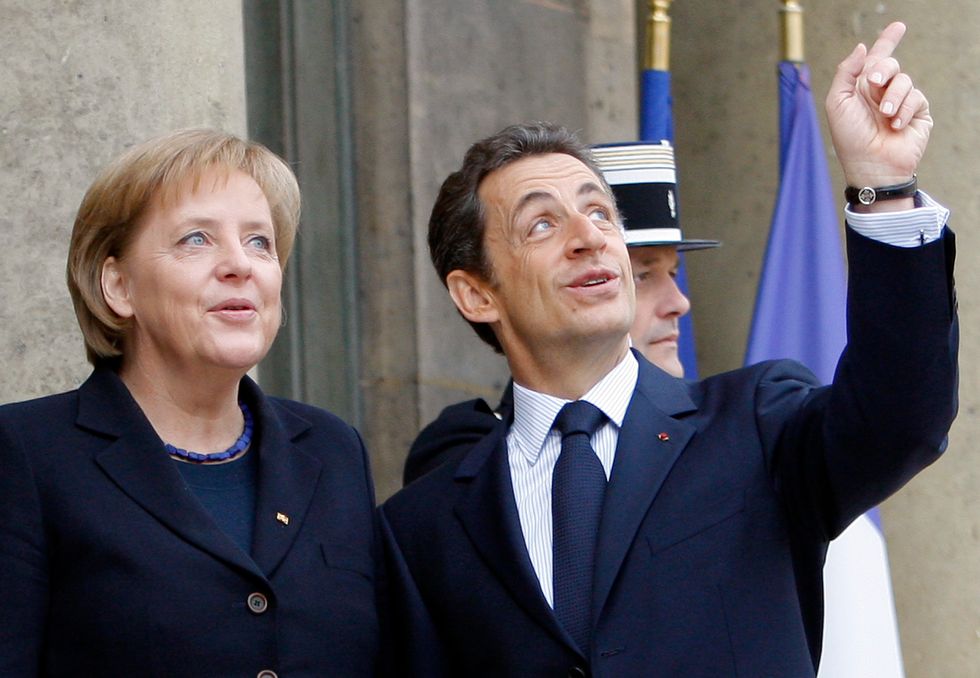We have to redeem ourselves or there is a real risk of decline
The hesitant attitude of the German chancellor has made the situation much worse. Now everything has become more difficult and the new Treaty goes in the opposite direction from what we hoped
by Alberto Quadrio Curzio*
If the EMU fails to redeem and relaunch itself, a decline is possible, maybe even the disintegration of the euro. There is no longer a third way: that was what the EMU has been trying for two years to follow, accepting the demands first of Sarkozy and Merkel and later of Merkel alone.
The Chancellor was convinced that the crisis could be overcome with a system of punishments and restrictions extraneous to the capacity for innovation that characterizes true statesmen. This led the Greek crisis to a cost estimated at more than 350 billion euros, when less than 100 billion would have been enough early in 2010 to prevent the crisis from degenerating. Now even the euro is at risk, despite the unanimous and reassuring statements of the 17 countries that belong to the common currency.
Redemption. It is necessary to relaunch the EFSF immediately. Everything is more difficult now because the Fund has been hampered by painfully slow decisions. It started out in June 2010 with a potential of 220 billion euros for loans and other actions, and with guarantees from the EMU countries for 440 billion, strengthened in the fall of 2011 with a potential of 440 billion for action and with guarantees for 780 billion. The Fund made a grant of 18 billion in support of Ireland and Portugal.
These minimum grants went well, although it was possible to observe a weakening of the demand that had been very strong at the outset, with regard to the first grant, with 45 billion requested on 5 offered. Now the Fund is considered, due to its inertia, something of a failure, and this will affect (or even jeopardize, the new permanent stability fund (ESM) that should replace it in 2013.
None of the EMU countries has demanded to know why the fund has remained so passive. Now it is essential to wake it up and put someone with a strong personality, like Trichet, in charge of it. Italy should make this motion, immediately and with strong pressure.
Relaunch. In our case it will come through an amendment to the Treaty that is currently being ratified to establish the European Stability Mechanism (ESM). It is necessary to include the issue of eurobonds with the guarantee of a real capital base created with the gold reserves and stocks of companies in the European national networks (energies, railroads, telecommunications, etc.) according to the proposal made in August 2011 by Prodi and Quadrio Curzio.
But other versions of eurobonds (like that of Juncker and Tremonti) are also highly valid. To facilitate the start of the stability fund, the ECB has to be allowed to acquire the bonds of this fund when issued.
Its capacity to intervene should apply leverage to arrive at a potential of at least 3,000 billion euros. The use of this amount would serve to cover part of the national public debts and also to make investments in European infrastructures.
Decline. The EMU is moving in the opposite direction, however, that is, toward a new Treaty containing very strict requisites and sanctions on the reduction of deficits and debts on the gdp. The effect will be to generate a lasting recession, and certainly not a convergence toward balancing budgets and reducing debts on the GDP toward 60%.
This will not lead to a gradual decline of the euro that, even with the exchange rate down to 1.27 to the dollar, is higher than the average of 1.20 at its birth. But one or more countries could withdraw from the euro. On the one hand Germany, which has been able to refinance its public debt in the last two years at very low rates, and on the other a few countries that can no longer support a recession with unemployment and devastating social consequences.
Those political personalities who aspire to be statesmen should prove that they really are. It is not enough to criticize: that is a task for the scholars and commentators, not to mention the rating agencies.
* Professor of Institutional Economics at the Department of Political Science at the Università Cattolica, Milan, and Vice President of the Accademia dei Lincei

